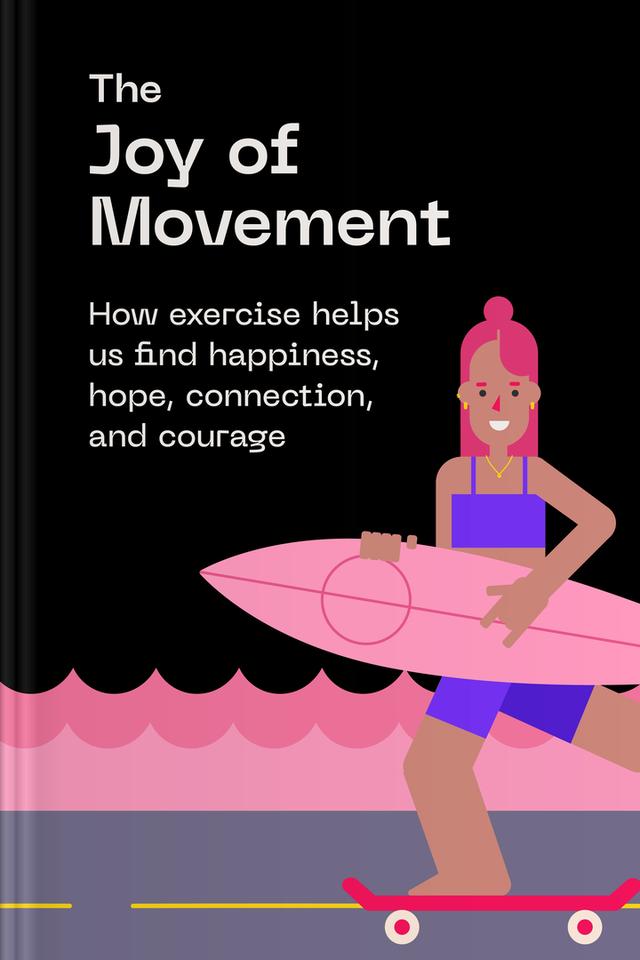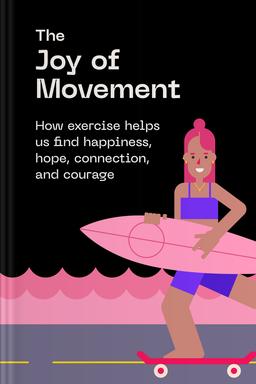You’ll learn
- The psychological rewards of movement
- How exercising can be addictive
- Insights into the power of music
- How your muscles can empower you
Protect the world’s peace. Donate to support Ukraine

first KEY POINT
Life is in motion. Our well-being and health are directly related to how active we are. It affects our emotional and mental state and determines our overall quality of life. In today's world, a person living in a metropolis is significantly limited in daily movement. Careers often require us to stay indoors and sit in front of a computer most of the day. It leads to muscle spasms and fatigue, making us want to spend the evening lying on the couch. However, here is a paradox: the less we move, the less we want to. That is, motionless rest does not restore energy as a walk in the fresh air would. To be inspired to move, you need to start moving!
The habit of physical activity keeps your body, soul, and brain in good shape. The hormones released by the body during sports help you experience stress, regulate the intensity of emotions, and feel happy and light. Group workouts help you socialize, while individual training lets you reflect and clear your head. Also, moderate exercise during the day improves your sleep, allowing you to recover fully at night.
Stay tuned to learn more about all the benefits of an active lifestyle and receive a hefty dose of motivation to start moving right now. If you are ready to accept rewards from your body for being sensitive and kind to it, this summary is definitely for you. Let's restore the lost connection with nature, the world, and their energy through movement!
second KEY POINT
Activities you need for survival as a human also please you; that's how nature guides you in life. Eating food and sleeping are the most prominent examples, but there are more. For instance, people enjoy working in groups as it also fulfills social needs. You experience relish when you see the result of your work. Psychological traits of a human include a need to have a sense of life. We naturally make success stories and use metaphors when analyzing lives. It makes us happier.You don't need to question yourself about what to do; all the connections between activities and rewards are intrinsic. It's already in your DNA; you only need to follow your instincts. One of the most significant ones is the need for physical activity. In 1855, a Scottish philosopher compared the pleasure of a fast walk to an intoxication similar to Bacchus's ancient ecstatic worship, the Roman God of wine.Vybarr Cregan, a cultural historian, also noted exercising's associated pleasures (runners high). He compared it to inebriation. American professional golfer Scott Dunlap equated the runner's high to the feeling after you had a few energy drinks mixed with alcohol and painkillers.Other people see the runner’s high as a spiritual experience. For example, some would start crying after their morning run. They likened the tearing to spiritual bliss, and the feeling was close to the description of connection that shamans usually give. The physical effort produced brings relief and purification, like a catharsis. It provides a sense of euphoria and belonging to something more. Movement lets us leave the framework of daily worries and return to the connection with the natural energy inherent in the human body.

Continue reading with Headway app
Continue readingfirst KEY POINT
second KEY POINT
third KEY POINT
fourth KEY POINT
fifth KEY POINT
sixth KEY POINT